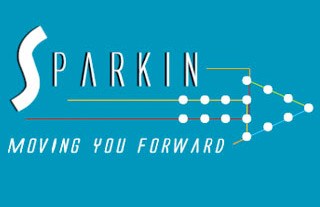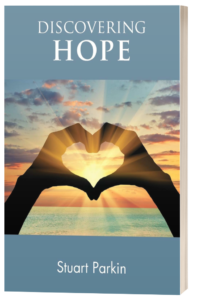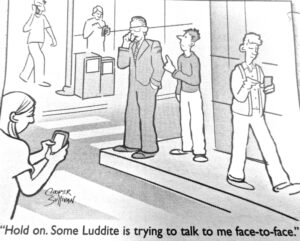Are you a good listener?
Are you a good listener? For communication to even be functional, a number of steps are required. Effective listening is one of them yet an underrated skill as where in the curriculum is it taught yet,
“Every human being needs to listen consistently in order to live fully.” (J. Treasure).
Yet, even if you are an ‘all-star’ listener, remember what you’re hearing has everything to do with what ‘you’ may have already communicated.
So, when you are not hearing the response you want from others, don’t make your first act to question them better, take responsibility and perhaps listen with the context in mind and with greater focus.
Effective Listening – But How?
“Every human being needs to listen consistently in order to live fully.” (J. Treasure).
So many individual and macro’ issues exist because of a lack of effective listening..and then understanding. The ability to obtain quality understanding is key for strategic problem solvers yet, effective listening is a skill not often taught. Below a 2011 TedTalk that seems more relevant than ever.
As well as ‘our’ understanding of those we communicate with, effectively ‘hearing’ someone else makes them feel heard, understood and appreciated. Key for us, we are more likely to provide them with a sense of trust and connection with us.
Two of the biggest challenges to effective listening:
We aren’t focused – Impatient and/or time constrained, we want sound bites.
We’re biased – However fair we think we are, our upbringing/culture/life experience etc effects how we listen..
Opposite, our a few videos and links that if nothing else serve as reminders for us how to be fully engaged.
19th Derek Parkin Scholarship Winner
Congratulations Jules Shindel,the 19th recipient of the Derek Parkin Award of $1500 (plus $500 coaching).
The award goes to the most empathetic account planning graduate. Judged by the students (at Miami Ad School New York) on the course as well as the teachers, teaching the course, not the school, not me.
Of the 19 winners to date, 10 woman, 9 men.
#MiamiAdSchool #ParkinPrizeWin
19th Empathy Award (aka Parkin Scholarship)
What a stunningly beautiful morning in New York. Looking forward to presenting the 19th ‘Empathy’ (Parkin Scholarship) later today at Miami Ad School.
#Beautiful #NewYork #ParkinScholarship #EmpathyAward #Sparkinsearch
Adaptability = Career Success?
A 2017 survey suggests that, all other factors remaining constant, hiring will place a much greatter emphasis on your adaptive ability as a means of determing whether you get hired. The report by talent experts Right Management, highlighted that by 2018, 91% of HR managers thought that one of the primary considerations in hiring individuals would be based on their ability to change. Meanwhile, 53% of employees believed that their ability to deal with change, or their adaptability, would be key for for future success. What might explain this discrepancy?
‘It is not the strongest or the most intellient who will survive but those who can best manage change.’ Charles Darwin
Alessandra and O’Connor in their book ‘The Platinum Rule,’ suggest that adaptability consists of two aspects, ‘flexibility’ or our willingness to change and ‘versatility,’ our ability to change. Perhaps the latter points more to experience and intelligence?
Flexibility, refers more to your willingness to pivot or, to focus your energy/ability to embrace rather than resist change. It is this ‘ability’ of acceptance, the degree to which you are more a ‘cup half full’/optimistic type, which may well explain who actually adapts best. If this is true then expect to be tested for your optimism quotient or ‘OC’, at a job interview in the near future.
What do you think?
Articles and commentary that might be of interest…
- Adaptability is
- Is it possible to hire for adaptability?
- Why learning adaptability will matter in the future workplace
- Adaptability – The new competitive advantage
- Success – The biggest benefit to being adaptable
- 14 Signs of an adaptable person
- Adaptability and Flexibility
- The Seven Skilsets Employers Want
Increasingly It Is Your Adaptability That Will Determine Your Success
Neophilia or ‘to like anything new’, might be something we can all relate to dependent on the context. New places to visit, new foods to eat, all good when they expand who we are, sometimes literally!
But what about new things or circumstances when there is much more at stake, such as new management or new systems at work which may impact our job security? Perhaps a Luddite after all?
What’s typical, most of us don’t like uncertainty, when the stakes are high, when we have much to lose.
Should we even care about how adaptable we are unless we are explicitly assessed for it when seeking employment?
A 2017 report by talent experts Right Management highlighted that 91% of HR managers thought that by 2018, individuals would be recruited for their ability to change/adapt. Meanwhile, 53% of employees believed adaptability, would be a key driver for future success. What might explain this discrepancy? And, given the stated direction of HR managers, what are the keys to you and those you care about developing effective adaptive capability?
‘It is not the strongest or the most intelligent who will survive, but those who can best manage change.’ (Darwin)
First we need to understand adaptability or, ‘the nature of changing or creating modification in oneself to suit a new environment.’
Alessandra and O’Connor in their book ‘The Platinum Rule,’ suggest adaptability consists of two aspects, ‘flexibility’ or our willingness to change and ‘versatility,’ or our ability to change. Perhaps the latter points more to experience and intelligence (IQ) and emotional (IQ) that people believe they possess in sufficient quantity.
Flexibility however, refers more to your willingness to pivot or, to focus your energy/ability to embrace rather than resist change. It is this ‘ability’ of acceptance, the degree to which you are more a ‘cup half full’ optimistic type, which may well explain who actually adapts. If this is true then expect people to be talking much more about optimism quotient’s, or ‘OQ.’
From a personal perspective, having clear options moving forward post-change, (internal or external) which whether exercised or not, can enhance our state of mind, can make us feel less trapped by a changing situation and therefore better able to adapt.
Arguably those with foresight, do and continue to plan for change, anticipating what might happen and prepare themselves accordingly, but not everything can be planned for.
And, even if we did anticipate, is planning and recognizing the same as the ability to actually cope and proactively adapt to change, particularly when it is sudden.
What do you think?
For more information on this subject see the newsletter on the subject https://bit.ly/2ExHOGj and past newsletters too. Feel free to sign up for future letters.











